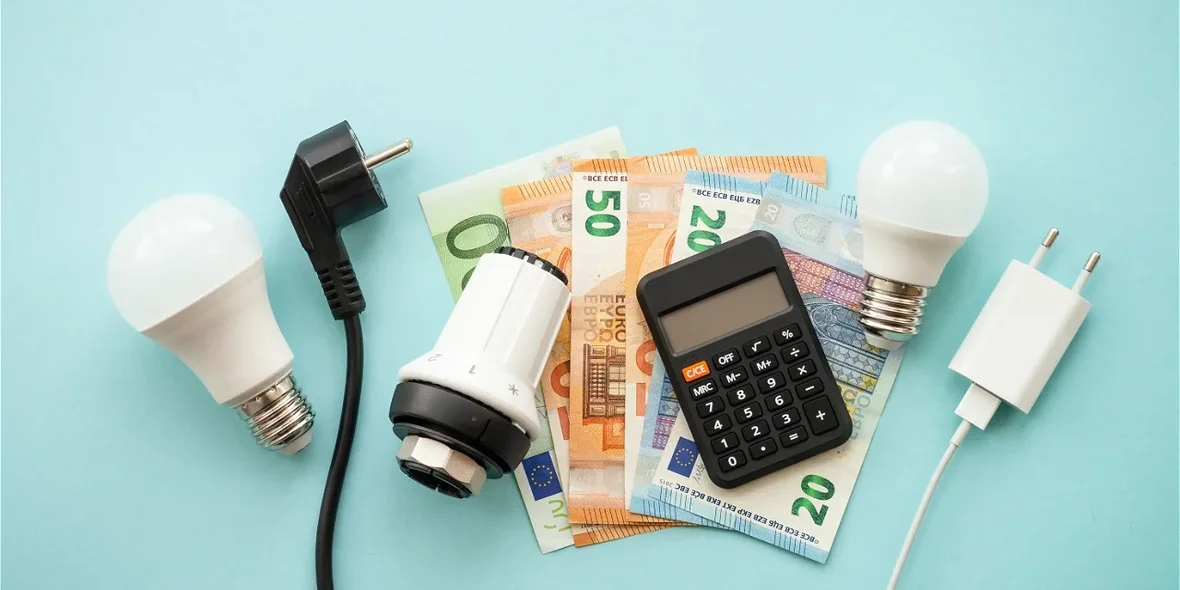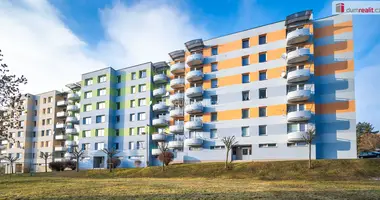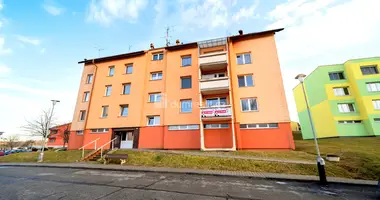
Top 10 Countries with the Most Expensive and Cheapest Utilities
Real estate prices vary from country to country, and the same applies to the cost of basic utility services. In many cases, utility bills make up a significant portion of monthly expenses, but this is not always the case everywhere.
The cost of electricity, for example, often depends on whether a country imports energy or produces it domestically. Yet even in the latter case, the price per kilowatt hour is influenced by the cost of energy carriers such as coal, oil, or natural gas.
In this article, we’ll explore where utility costs are the highest and where they are almost negligible.
Source Data and Ranking Methodology
To analyze the cost of utility services, we use data from Numbeo, the world’s largest platform providing information on the cost of living, price levels, quality of life, and other indicators in cities and countries around the globe.
Numbeo operates as a crowdsourced platform, meaning that users anonymously contribute data through surveys and forms where they indicate average monthly expenses or the prices of specific services (e. g., cost per kWh of electricity or per cubic meter of water).
To improve data reliability, Numbeo supplements user-contributed information with manually collected data from official utility company websites, government portals, and other public resources. This manual data collection is conducted twice a year, and it is given priority weighting in the final calculations.
On the platform, utility services include expenses for electricity, heating, cooling, water, and garbage collection for an apartment of 85 square meters. Costs are reported in local currency and converted to US dollars at the current exchange rate for standardization.
Top 5 Countries with the Most Expensive Utility Bills
Based on Numbeo data for 2025, we identified five countries with the highest monthly utility expenses in the world. As it turns out, all of them are located in Europe.
Austria
Austria ranks first in terms of utility costs, with average monthly expenses reaching $377. The country heavily invests in renewable energy—about 80% of electricity is generated from hydropower and other “green” sources. However, electricity produced this way is often three times more expensive than that generated by fossil fuel combustion. Additionally, due to the cold climate, households incur significant heating expenses during the winter months.
What utilities are included in Austria:
- Electricity. The average cost of electricity in Austria is approximately $0.25 per kWh. For an 85 m² apartment with moderate consumption (about 400 kWh/month), this results in around $100 per month. The tariff includes taxes and surcharges for supporting renewable energy.
- Heating and cooling. Heating is the major cost driver, accounting for $150—$180 per month. Most homes use central gas or electric heating, with costs closer to the lower end of the range. In buildings with energy-efficient systems such as heat pumps, the monthly cost tends to be higher due to the upfront system expenses being passed on.
- Water supply. Water costs around $2 per cubic meter. With an average household consumption of 25 m³ per month (for a family of 2–3), this amounts to about $50 monthly. High water tariffs are explained by the limited number of freshwater sources and a strong emphasis on recycling and water treatment.
- Waste collection. Waste disposal fees average $15—$20 per month. This includes the cost of waste sorting, recycling, and final disposal.
- Internet (not included in basic utilities). Unlimited high-speed internet costs $35—$40 per month.
In Austria, utility expenses make up approximately 10–12% of the average household income, which is relatively moderate. Although the focus on recycling and renewable energy leads to higher housing-related costs in the short term, this approach is more economically and environmentally sustainable in the long run for both the government and residents.
Germany
Germany ranks second among countries with the most expensive utility costs, with average monthly expenses reaching $303. The high cost is driven by heavy taxation on energy carriers and a strict environmental policy aimed at transitioning to renewable energy sources. Germany is a global leader in green energy, but subsidies for wind and solar power plants are partly funded by consumers; as a result, utility tariffs become higher.
What utilities are included in Germany:
- Electricity. The average cost of electricity in Germany ranges from $0.28 to $0.30 per kWh. With typical monthly usage of 350–400 kWh, this results in electricity bills of approximately $100—$120. The price includes taxes and renewable energy surcharges.
- Heating and cooling. Average heating expenses are about $120—$150 per month. Cooling is less common due to Germany’s temperate climate, which rarely requires air conditioning.
- Water supply. Water costs around $1.83 per cubic meter. With an average household consumption of 25 m³/month, the monthly water bill comes to about $45—$50. The relatively high tariffs are primarily due to wastewater treatment costs.
- Waste collection. Waste disposal fees range from $7 to $25 per month, depending on the municipality. As in Austria, this includes recycling, sorting, and final disposal costs.
- Internet (not included in basic utilities). Fiber-optic or cable internet service typically costs around $50 per month.
Utility expenses in Germany account for approximately 8–12% of the average household income. In major cities such as Munich or Frankfurt, utility bills tend to be higher due to both increased consumption and elevated local tariffs.
A distinctive feature in Germany is the concept of “Nebenkosten” (ancillary or additional costs), often included in the so-called “Warmmiete” (warm rent). This means that heating, water, and waste collection may be partially included in the rent, while electricity is usually billed separately.
In addition, households are required to pay a public broadcasting fee (Rundfunkbeitrag) of $18.36 per month, regardless of whether TV or radio is used. According to user reports on social media, monthly winter bills for gas and electricity in larger apartments or houses can reach $700—$1000, especially when heating or air conditioning is used intensively.
Actual residential properties in Germany
Estonia
Estonia ranks third among countries with the highest utility expenses, with an average monthly cost of $325. The country’s cold climate results in significant heating needs, which are costly due to dependency on imported energy resources.
What utilities are included in Estonia:
- Electricity. The average cost of electricity in Estonia is approximately $0.20 per kWh, which translates to about $80 per month based on standard consumption.
- Heating and cooling. Average heating costs range between $160—$190 per month and, in particularly cold years, can reach $230—$270. These expenses are not limited to winter — households often require heating in autumn and spring as well. Around 60% of Estonian households are connected to district heating systems, which reduce individual infrastructure costs but result in higher collective tariffs.
- Water supply. Water is priced at about $1.60—$1.90 per cubic meter, totaling $40—$47 monthly for typical consumption. Rates in Tallinn and other major cities are higher than in rural areas due to infrastructure modernization costs.
- Waste collection. Waste disposal fees average $20—$25 per month. Estonia’s waste recycling system is still in early development, and the lack of advanced sorting and processing facilities contributes to above-average tariffs.
- Internet (not included in basic utilities). Broadband internet with speeds up to 60 Mbps costs approximately $35 per month.
Utility costs in Estonia amount to 12–18% of the average household income, with post-tax monthly earnings ranging from $1600 to $2000. This makes utilities a notable financial burden, especially in Tallinn, where service tariffs tend to be higher than the national average.
United Kingdom
Residents of the United Kingdom pay an average of $323 per month for utilities. High rates are primarily driven by the liberalized energy market, which is open to private companies, and by significant taxation on energy carriers. The UK also heavily invests in wind and solar power, partially passing these costs on to consumers through their electricity and gas bills.
What utilities are included in the United Kingdom:
- Electricity. The average electricity price in the UK is around $0.27 per kWh, resulting in monthly bills of $95—$108, depending on usage.
- Heating and cooling. The UK has a humid and cool climate, which leads to heating expenses of $140—$160 per month during the winter. Most households use individual gas boilers, with gas priced at about $0.09 per kWh, although some rely on electric heating as well.
- Water supply. The island’s limited freshwater resources contribute to higher water prices, averaging $1.90—$2.20 per cubic meter, or $47—$55 per month. Additionally, the UK’s water infrastructure is fully privatized, and tariffs are set by the market, not the state.
- Waste collection. Waste collection is included in the Council Tax, but when itemized separately, it amounts to approximately $20—$30 per month.
- Internet (not included in basic utilities). Broadband internet service costs around $40 per month.
Utility bills in the UK account for roughly 8–12% of the average household income, with post-tax earnings around $2500—$3000 per month. A key feature of the UK market is its liberalized electricity and gas sector, where consumers can choose providers—but this does not always result in lower costs.
The government offers subsidies for home insulation and modern boiler installation, but access to these programs is limited. On social media, many Britons have complained about sharp increases in gas and electricity bills, particularly during the 2022–2023 energy crisis. While the situation has stabilized by 2025, tariffs remain high.
Since 2024, the UK has experienced frequent summer heatwaves, with temperatures exceeding 30 °C. In 2025 alone, there were five such heatwaves, and this trend is expected to drive up utility bills due to increased demand for air conditioning, previously uncommon in British households.
Czech Republic
The Czech Republic rounds out the top five countries with the highest utility expenses, with an average monthly cost of $316. The main driver behind the high prices is the country’s dependence on imported energy resources, particularly natural gas.
What utilities are included in the Czech Republic:
- Electricity. The average electricity price is about $0.21 per kWh, resulting in monthly bills of $73—$84. These rates reflect the government’s efforts to fund the transition from fossil fuels to renewable energy, partially through end-user tariffs.
- Heating and cooling. Both heating and air conditioning are essential, as winters are cold and extreme heat events have become more frequent. Combined monthly expenses average $150—$170. About 50% of households in the Czech Republic are connected to district heating systems.
- Water supply. The Czech Republic has limited water resources suitable for use without extensive treatment, contributing to high prices — approximately $1.70—$2.00 per cubic meter, or $42—$50 per month. Water tariffs in Prague and other major cities are higher than in rural areas due to infrastructure costs.
- Waste collection. Waste disposal costs about $20—$25 per month. The Czech Republic is actively expanding waste sorting, including the separation of plastic, paper, glass, and organic waste. Although the recycling system is less complex than in Germany, it still adds to disposal costs.
- Internet (not included in basic utilities). Unlimited cable internet service costs approximately $20 per month.
Utility bills in the Czech Republic account for about 12–15% of average household income, with rates in Prague being 3–7% higher than the national average. The government actively supports home insulation and modern heating systems through subsidies. However, these measures have not yet resulted in a significant reduction in utility rates.
Actual residential properties in Czech Republic
Top 5 Countries with the Lowest Utility Costs
While utility bills in developed countries often exceed several hundred dollars, there are places where the monthly cost doesn’t even reach $100. In fact, in some regions of the world, utility expenses are so low that they barely impact household finances at all.
Iran
Iran ranks first among countries with the lowest utility costs, largely due to heavy government subsidies on energy. This is made possible by the country’s vast domestic reserves of hydrocarbons — Iran is one of the world’s largest producers of oil and natural gas.
What utilities are included in Iran:
- Electricity. The cost of electricity is extremely low, at just $0.03—$0.05 per kWh, resulting in monthly bills of only $9—$15.
- Heating and cooling. Winter temperatures rarely fall below freezing, while summer temperatures often exceed 29°C. As a result, combined heating and cooling costs are minimal, averaging just $3—$5 per month.
- Water supply. Water is priced at approximately $0.10 per cubic meter, totaling around $2—$3 per month based on typical consumption.
- Waste collection. Iran’s waste management system is limited, and there are no direct charges for recycling or garbage processing.
- Internet (not included in basic utilities). Monthly broadband internet costs an additional $5—$7.
Total utility expenses in Iran amount to less than 5% of the average household income, which ranges between $300 and $500 per month. Government subsidies are estimated to cover 80–90% of the actual energy costs. Although subsidy reform has been under discussion in recent years, that potentially leads to higher tariffs.
Venezuela
Venezuela ranks second in the world for lowest utility bills, with average monthly expenses of just $20. As in Iran, the low costs are the result of massive government subsidies on energy, made possible by the country’s abundant oil and gas reserves.
What utilities are included in Venezuela:
- Electricity. Households in Venezuela typically pay only $3—$8 per month for electricity. This is largely due to near-free pricing sustained by state subsidies funded through oil revenues.
- Heating and cooling. Heating is virtually unnecessary due to the tropical climate. Cooling costs (mainly air conditioning) are around $5—$7 per month, also kept low thanks to inexpensive electricity.
- Water supply. Monthly water costs for a household range between $3.75 and $5. However, water is often rationed, and supply is delivered according to a rotating schedule.
- Waste collection. Garbage disposal fees are extremely low, at approximately $1—$2 per month.
- Internet (not included in basic utilities). Wireless internet service costs about $37 per month, which is more than 1.5 times the cost of all other utilities combined.
A unique feature of Venezuela is its near-zero cost of electricity, maintained through state subsidies tied to oil revenues. However, chronic underinvestment in public utilities has led to severe infrastructure degradation. Power plants and water systems are technologically outdated, and maintenance is infrequent, resulting in frequent service disruptions despite low bills.
Egypt
Residents of Egypt pay an average of $22 per month for utilities. As a major natural gas producer, Egypt is able to keep electricity and gas prices affordable through state subsidies.
What utilities are included in Egypt:
- Electricity. The average electricity price is $0.03—$0.04 per kWh, which results in monthly bills of $9—$16 depending on usage.
- Heating and сooling. Heating is rarely needed, but air conditioning is essential due to Egypt’s hot climate. Cooling costs are modest, averaging $4—$6 per month.
- Water supply. Water costs for a household range from $2.50 to $3.75 per month. In cities like Cairo, the water supply is generally reliable, though water quality remains substandard.
- Waste collection. Garbage disposal fees are minimal—$0.50 to $1.50 per month.
- Internet (not included in basic utilities). High-speed internet service costs about $12 per month.
With an average net household income of $150—$300 per month, utility bills represent only 5–7% of total household expenses. However, since 2014, the Egyptian government has been gradually phasing out subsidies, leading to a 15–20% increase in utility tariffs during 2023–2024. While costs remain low by international standards, continued subsidy reductions may drive prices up in the coming years.
Nigeria
In Nigeria, the average monthly cost of utilities is $29. Until 2022, this figure was 35–55% lower, but that year the government eliminated subsidies for household energy, particularly on fuel and fossil resources.
What utilities are included in Nigeria:
- Electricity. Electricity costs range from $15 to $24 per month. However, most Nigerians have access to power for only 6–12 hours per day, forcing many households to rely on diesel generators. The cost of generator fuel is not included in official utility bills and can significantly increase actual expenses.
- Heating and cooling. Heating is unnecessary due to Nigeria’s tropical climate, where temperatures range from 25°C to 35°C year-round. Air conditioning costs about $5—$7 per month, but many households use electric fans, reducing costs to $2—$3.
- Water supply. The price per cubic meter of water is about $0.15—$0.20, translating to $3.75—$5 per month. However, piped water is often unreliable, and many families buy bottled water, which increases real costs but is not reflected in utility bills.
- Waste collection. No formal fees are charged for waste collection.
- Internet (not included in basic utilities). Internet access, if required, costs an additional $31 per month—more than the total cost of other utilities combined.
With average incomes relatively low, Nigerian households spend only 5–10% of their budget on official utility services. However, frequent electricity blackouts, sometimes lasting for days, and unreliable water quality significantly impact living conditions. The removal of fuel subsidies has increased the financial burden, particularly for households dependent on private power generation.
Bangladesh
In Bangladesh, average monthly utility costs are approximately $29.50. The government partially subsidizes bills for electricity, gas, and air conditioning, the latter being especially important in the tropical climate, where temperatures often exceed 35°C.
What utilities are included in Bangladesh:
- Electricity. The average monthly electricity bill is $18—$25, depending on household consumption and seasonal use of cooling appliances.
- Heating and cooling. Heating is unnecessary. Expenses related to electric fans or air conditioners are modest, at around $3—$5 per month.
- Water supply. Water costs range from $2.50 to $3.75 per month, but supply is often scheduled, and water quality is generally poor, especially outside major cities.
- Waste collection. No formal fees are charged for garbage disposal.
- Internet (not included in basic utilities). Unlimited broadband internet costs about $14 per month.
Utility bills in Bangladesh represent about 5–10% of average monthly income, which ranges from $150 to $300. In Dhaka, where a large share of the population lives, infrastructure is relatively better than in rural areas. However, power outages and water supply disruptions are still common.
The country faces chronic underfunding of its utility sector, and rapid population growth further strains efforts to modernize infrastructure. These challenges continue to impact service quality and availability, even where pricing remains low due to subsidies.
Summary
Utility costs are influenced by a wide range of factors, and a country’s wealth is not the determining one. Many Western European nations rank among the world’s leaders in GDP per capita, yet residents face high monthly utility bills.
The key driver is access to natural resources — specifically, energy carriers. Countries rich in oil, gas, or hydropower can keep utility costs low, making them barely noticeable in household budgets. However, in such cases, heavily subsidized pricing is often involved.
Subsidies, while effective in the short term, are inherently unstable. As demonstrated by Nigeria, they can be withdrawn abruptly, leading to sharp increases in utility costs. This makes the affordability of utilities not just a matter of energy reserves but also of policy continuity and long-term infrastructure investment.
Author
I write informative articles about real estate, investments, job opportunities, taxes, etc.



























